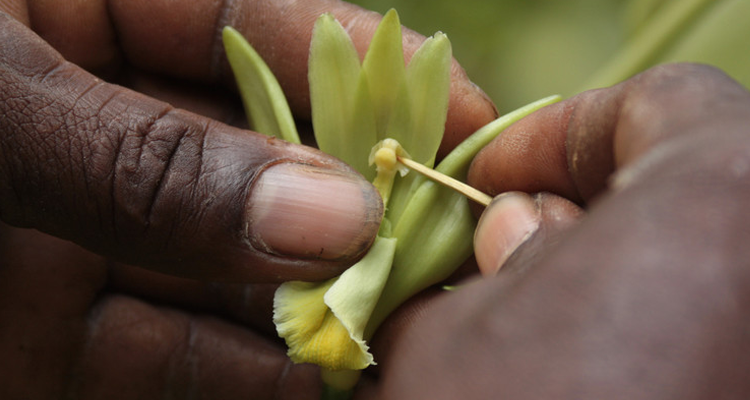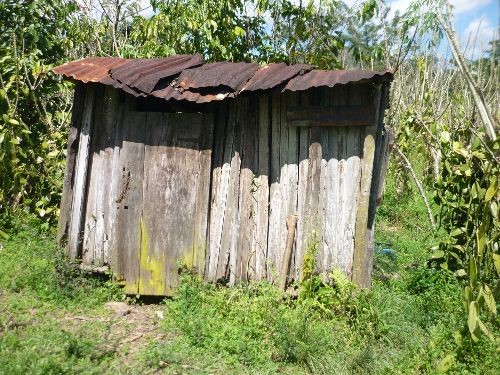by Fairtrade Africa
What has this picture got to do with ice cream?
You wouldn’t imagine it, would you? That this rutty wooden structure has something to do with your scoop of dessert? But it does. It also has something to do with your ice cream, perfume and even car freshener. This wooden structure, and many like it, are scattered around the hilly forests of Madagascar; Sambava, Antalya, Andava. They act like houses for men who bear weapons, vigilantes who are committed to protecting their farms.
Inside houses like these – just big enough to swing a cat in – there is usually nothing more than a thin mattress, a flimsy cover, some utensils, maybe a stove for warming vary amid’anana, a local delicacy. Inside, you will most often find an assortment of the aforementioned crude weapons; machetes, clubs, knives and something called a Trap that is like a knife but can cut through bone. They are not built for comfort but practicality. The weapons are used to fend off marauding thieves who like to steal from the vanilla farms of Madagascar where 80% of the world’s vanilla comes from. In Marovato, for example, men have been known to bear double-barreled shotguns to protect their farms. Men have been maimed and killed after being caught stealing vanilla. It’s an irony, in the end, that something of such tantalising taste and smell, springs from a place of such friction, and sometimes violence.

As a cloud of dusk falls over the hills, and the shadows grow longer on the farms, men come out, dressed for the night, weapons in hand. Later, like prowling cats, they become one with the shadows of the night, braving mosquitoes and the biting cold, eyes accustomed to shapes of men. Everything you need to understand about that cone of vanilla ice cream rises from the struggles that arise from these vanilla farms.
Clario Fonohana, one of the farmers, says, ‘One of the biggest problems in farming vanilla is insecurity, you have 100kgs of green vanilla waiting for maturity, but you have to stay in the farm permanently during the 5-6 months of January to June. You have to protect your investment.’ He has to stay on the farm by day and by night, he hires other men to help him protect his vanilla.
Next time you eat a scoop of ice cream, or perfume your car, or order a vanilla Crème brûlée after dinner in a restaurant with moody lighting, spare a thought for all the farmers out there in the cold, swatting mosquitoes, and peering into the cold darkness of Madagascar, protecting your dessert. And when someone says, ‘you are so vanilla,’ to mean you are not surprising or not adventurous enough, remind them that vanilla is anything but ‘safe’ or ‘unadventurous.’
Where to buy Fairtrade vanilla
